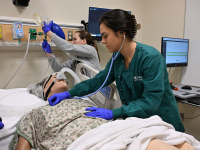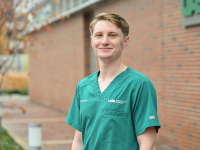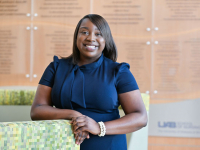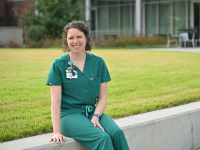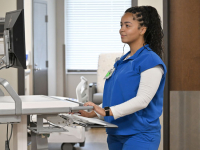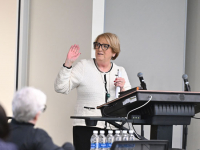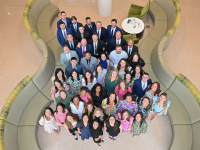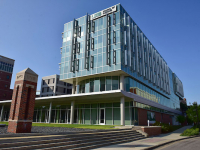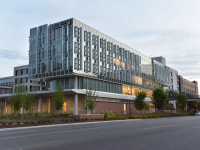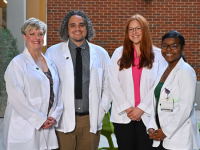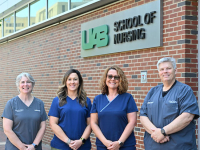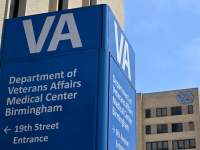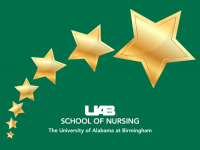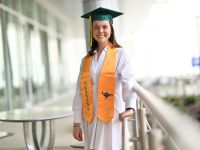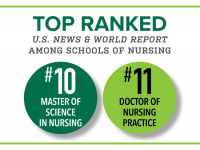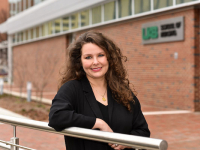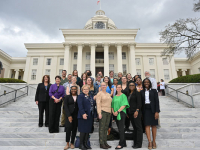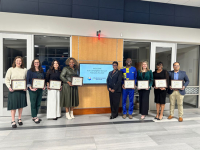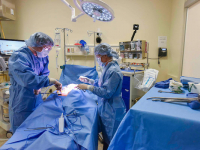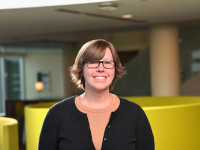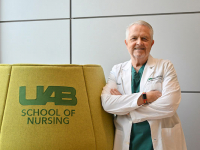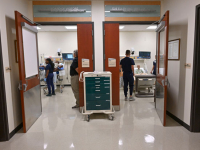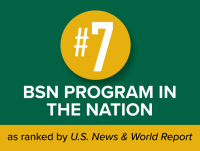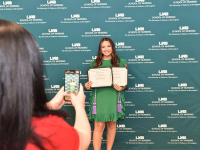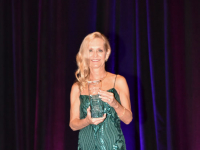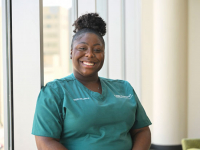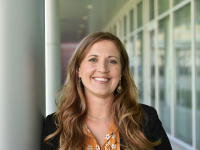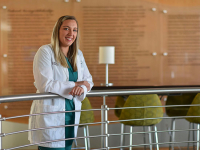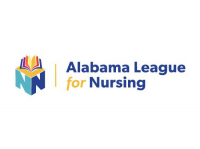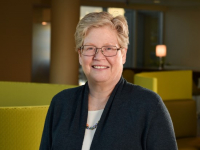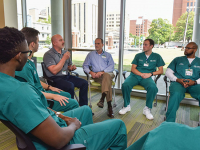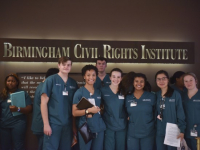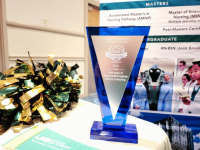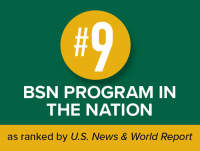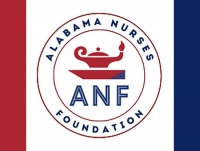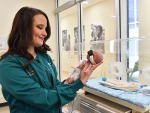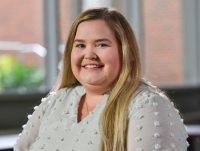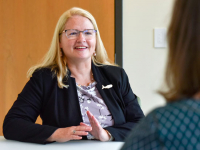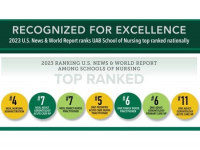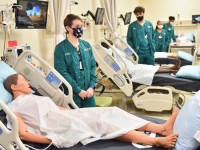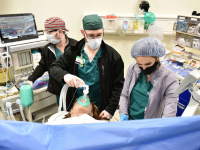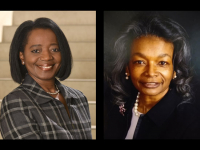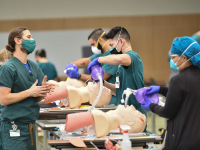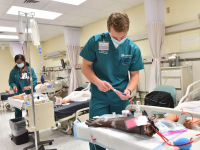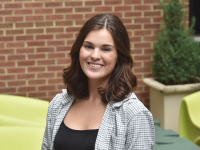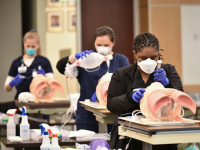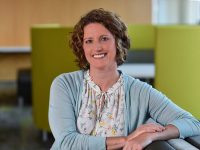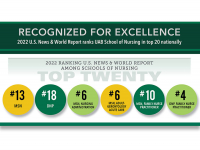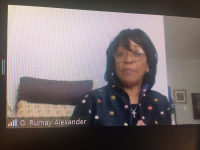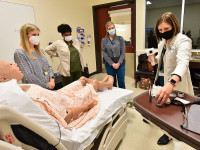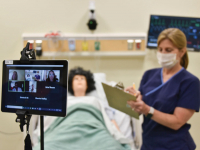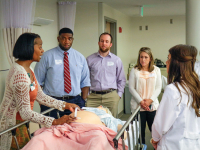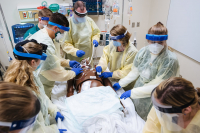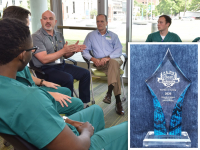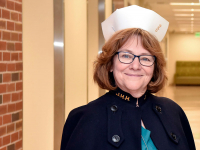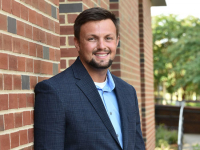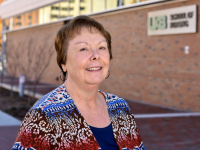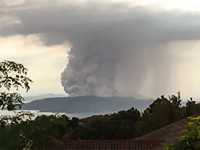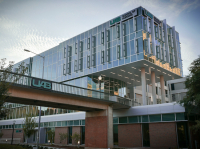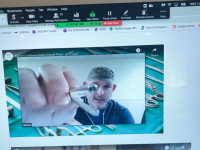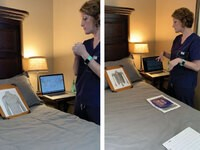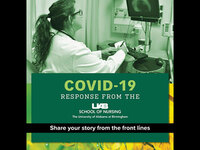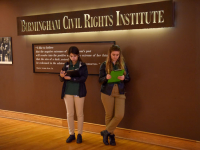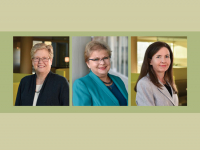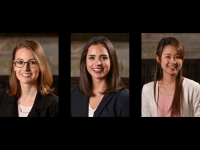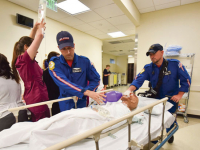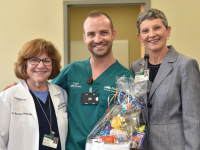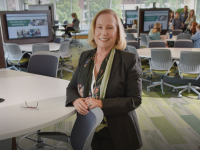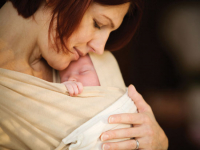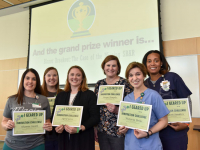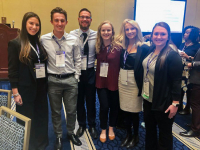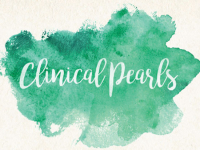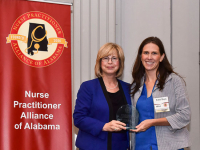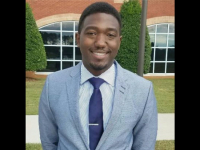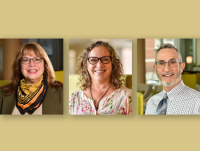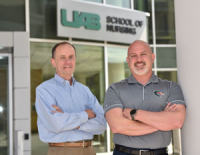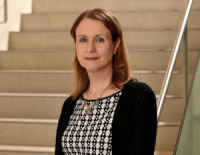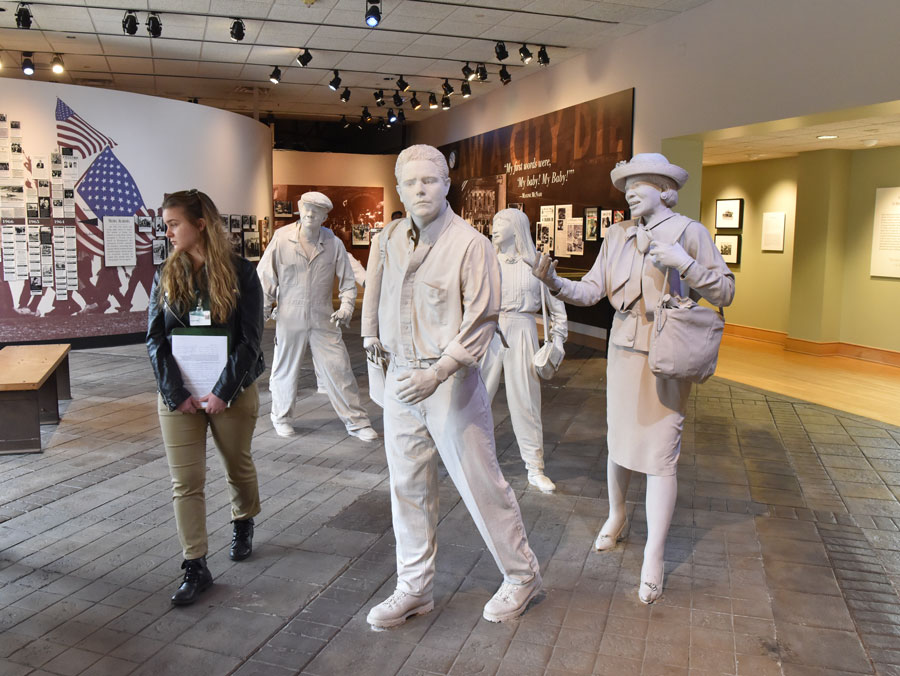 Understanding history and its impact on today is an important part of health care. That is the basis of an interactive class created by University of Alabama at Birmingham School of Nursing Instructors Elizabeth Crooks, DNP, RN, CNE, and Rachael Bruce, MSN, MPH, CRNP, NP-C, wherein they teach nursing honors students using the resources at the Birmingham Civil Rights Institute. On March 3, a group of 12 nursing honors students visited the BCRI and reflected on Birmingham’s history of segregation, role in the civil rights movement, and how that history continues to impact access to care and the health of the city’s residents.
Understanding history and its impact on today is an important part of health care. That is the basis of an interactive class created by University of Alabama at Birmingham School of Nursing Instructors Elizabeth Crooks, DNP, RN, CNE, and Rachael Bruce, MSN, MPH, CRNP, NP-C, wherein they teach nursing honors students using the resources at the Birmingham Civil Rights Institute. On March 3, a group of 12 nursing honors students visited the BCRI and reflected on Birmingham’s history of segregation, role in the civil rights movement, and how that history continues to impact access to care and the health of the city’s residents.
“These students are in their first nursing leadership course, learning skills in communication, ethics and conflict management. This activity is a chance to approach the ethical question of ‘Is health care a civil right or a privilege?’,” Crooks said. “I want these future nurse leaders to see nursing’s role as advocates for diversity and inclusion and addressing health disparities.”
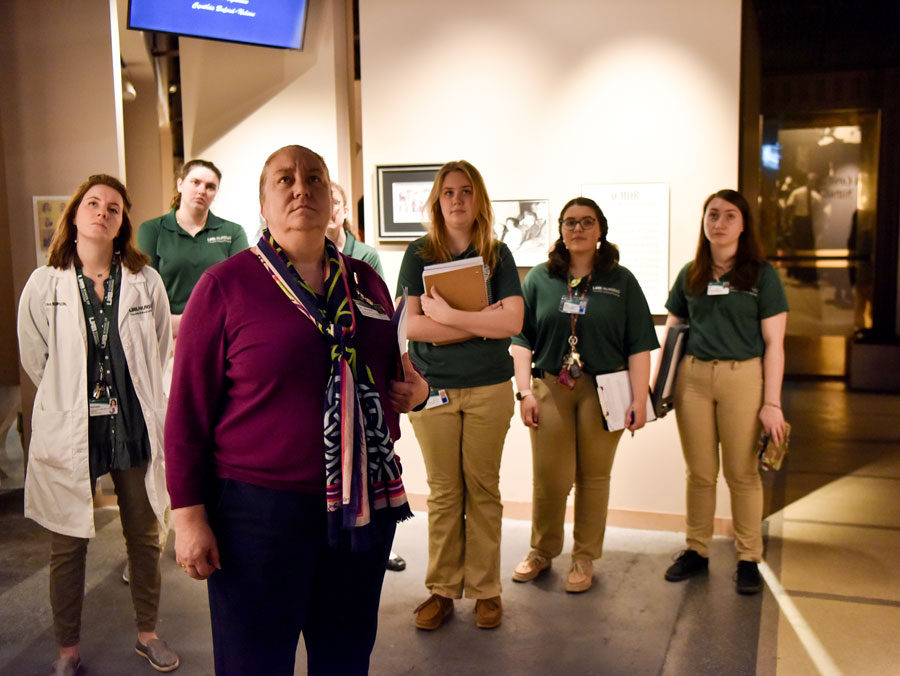 The Bachelor of Science in Nursing (BSN) students examined the American Association of Colleges of Nursing (AACN)’s five core values — altruism, autonomy, human dignity, integrity and social justice — as they reflected on the Civil Rights Movement and its leaders. After being able to freely tour the BCRI, the group gathered for a discussion of what they learned and experienced in the Institute’s exhibits.
The Bachelor of Science in Nursing (BSN) students examined the American Association of Colleges of Nursing (AACN)’s five core values — altruism, autonomy, human dignity, integrity and social justice — as they reflected on the Civil Rights Movement and its leaders. After being able to freely tour the BCRI, the group gathered for a discussion of what they learned and experienced in the Institute’s exhibits.
For Joia Pfeiffer, a BSN student from Albertville, this was her first chance to visit the BCRI. The experience was more emotional than she expected, especially the exhibit highlighting the four African American girls killed in the 16th Street Baptist Church bombing.
“That exhibit and the Institute made me reflect on the level of hate that drove that violence,” she said. “Hate can get really out of hand, and it is a reminder that we need to show compassion and understanding.”
The visit allowed her a chance to compare leadership qualities from the civil rights leaders and nurses. Approaching care and patients with compassion and understanding are important parts of nursing, Pfeiffer said, because oftentimes patients see nurses during some of their worst days.
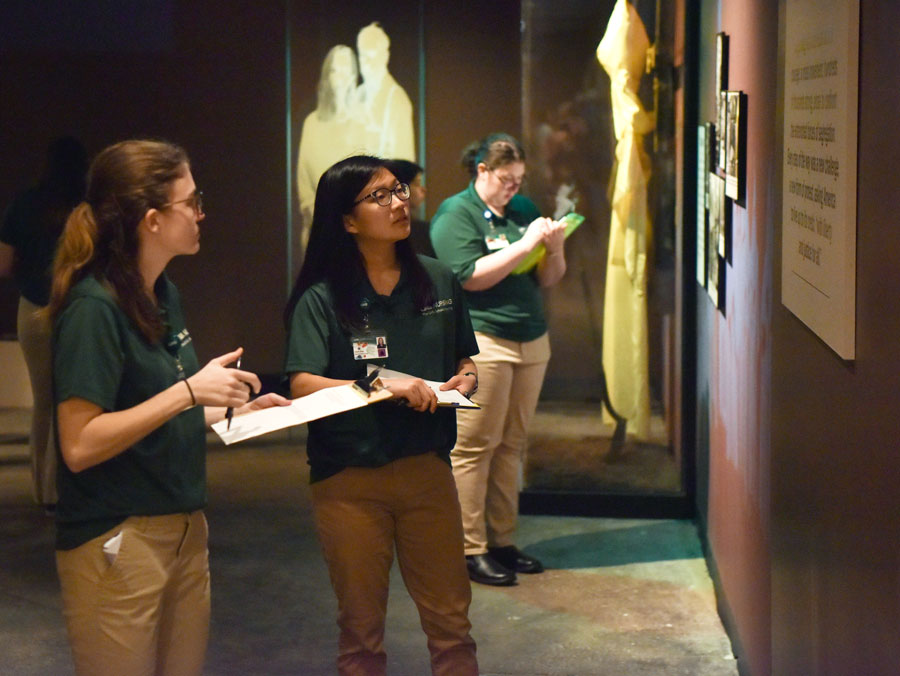 Decatur native Johanna Halbrooks visited the BCRI once before this class, and the second visit gave her a chance to reflect more on the impact of segregation on health care and access to care.
Decatur native Johanna Halbrooks visited the BCRI once before this class, and the second visit gave her a chance to reflect more on the impact of segregation on health care and access to care.
“I went into the experience with an open mind and thought about health disparities and implicit bias,” Halbrooks said. “I also focused on the fact that neighborhoods and people were divided, and you could see that influence on people and their access to care.”
In the group discussion, there was a lot of focus on person-first language and acknowledging the patient’s humanity. To Halbrooks, this means seeing the patient as an individual and working to understand their experience and circumstances, rather than just seeing them as another case.
“The combination of arts and science is not only a foundation of nursing, but an opportunity to widen the student’s view of their scope of practice and demonstrate the core values of nursing,” Crooks said. She hopes to see more students visit the BCRI and integrate the humanities into their nursing education. “This is a way to embrace what is uniquely Birmingham. Birmingham is a great classroom — you just have to figure out how to use it.”

